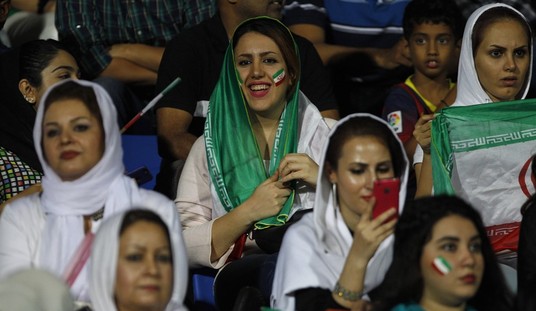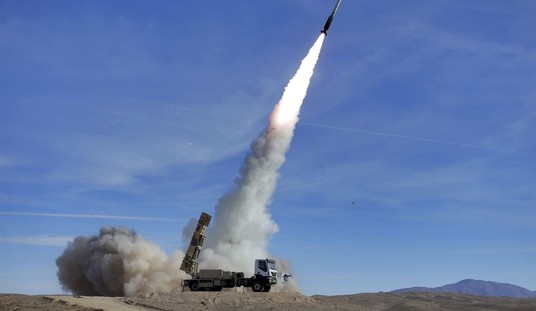Here is the second part of an excerpt from my new book, The Road to Fatima Gate: The Beirut Spring, the Rise of Hezbollah, and the Iranian War Against Israel. If you missed it yesterday, read Part I first.
I called Hussein a few days later. He said Dan and I were scheduled for an interview with Mohammad Afif, a member of Hezbollah’s political bureau, back at the office.
“I know a guy who can translate for us,” Dan said. “He owns a woodcrafting shop in Achrafieh and his English is perfect.”
So Dan called his man Abdullah and asked him to meet us for coffee ahead of our appointment. The café he chose wouldn’t have been out of place in Seattle or Portland except that it served European-style espresso instead of American. Abdullah and his wife waited for us at a table in the back.
The four of us shook hands and sat down to talk.
“Do you always work in countries at war?” Abdullah’s wife asked me while squinting and nervously smoking her cigarette. Lebanon wasn’t at war at that time, but the car bombs had made the country just dangerous and unstable enough that I didn’t immediately catch that she was exaggerating.
“This isn’t a war,” Abdullah said gently. “This is a crisis.”
He didn’t seem to feel perfectly comfortable about going to the dahiyeh to meet with Hezbollah, although he was willing.
“Have you been down there before?” I said.
“Why would I have been there before?” he said. “For some sightseeing?”
Dan and I laughed.
He didn’t say much in the taxi on the way. And he looked nervously out the window as we rolled past Hezbollah’s flags and posters of “martyrs.”
When we were left alone in Hezbollah’s waiting room, he looked profoundly uncomfortable. His eyes turned to saucers when he saw the gigantic poster of the grim-faced Khomeini on the wall.
“This is nuts,” he said. “I can’t believe I’m here.”
Hussein Naboulsi made a brief appearance, introduced himself to Abdullah, and chaperoned us down the hall to Mohammad Afif’s spacious office.
Afif wasn’t friendly and didn’t pretend to be. His handshake was perfunctory, he wouldn’t smile, and he had no interest in small talk. I turned on my voice recorder and placed it between myself and Abdullah. Dan snapped pictures as I rattled off questions.
Almost everything Afif said had been scripted and packaged for Western consumption. He did not say to us what Hezbollah said on its Al-Manar TV station, which was banned in the United States for broadcasting terrorist propaganda. He didn’t refer to Israel as “the Zionist Entity,” nor to the United States as “the Great Satan.” He condemned the car-bomb assassinations of his Lebanese political enemies, although it sounded like he only did so because he was supposed to. He said Hezbollah wasn’t interested in destroying Israel, only in justice for Palestinian refugees.
I groaned silently to myself while wishing he would say something, anything, remotely interesting and worth publishing. Almost an hour passed before he did.
He droned on and on, lecturing me and Dan about Palestinian suffering. He didn’t know it, but I actually did sympathize with Palestinian suffering and did not need to be lectured.
“You should visit the Sabra and Shatila refugee camps,” he said. “You need to see how Palestinians in Lebanon live.”
“I have seen those camps,” I said, which seemed to surprise him. Charles Chuman had shown them to me, and they were unspeakably squalid. What I said next surprised him much more. “And it’s obvious to me that Palestinians are treated much worse in Lebanon than they are by Israelis.”
He sat bolt upright in his chair. That, apparently, was the last thing he thought I would say. But he quickly recovered.
“Yes,” he said. “You are right. I am sorry about that.” It was my turn to be surprised. At last he didn’t have a scripted response, and his answer was honest.
More interesting than anything Afif actually said were his facial expressions. I wished Dan had brought a video camera instead of a still camera so he could capture them.
“You must know,” I said, “that Americans are sick to death of the Arab-Israeli conflict. Is there any chance we’ll see peace in this region any time soon?”
Afif didn’t need Abdullah to translate the word “peace.” He knew exactly what it meant in English just as almost every Westerner in the Middle East knew how to say it in Arabic. And when he heard me say “peace,” when he was relaxed and not thinking about the fact that I was carefully watching his face, he twisted his flat expression into a grimace. The moment was fleeting, and he composed himself almost instantly, but it’s almost impossible for even the most accomplished poker players and liars to control all involuntary facial muscles that reveal their inner thoughts and emotions.
What Afif actually said—that Hezbollah sincerely hoped for peace and a mutually agreeable settlement between Israelis and Arabs—was simply not credible. Hezbollah said nothing of the sort in its own media and said nothing of the sort in its schools and its summer camps, where it indoctrinated children into a culture of martyrdom, death, and resistance.
Aside from the oft-repeated Death to Israel and Death to America slogans, those suckled on Hezbollah schooling and weaned on Hezbollah media were bombarded with hysterical bigotry, conspiracy theories, and warmongering.
“The Jews invented the legend of the Nazi atrocities,” Hassan Nasrallah said in a declaration on April 9, 2000. “Anyone who reads [Islamic and other monotheistic holy] texts cannot think of co-existence with them, of peace with them, or about accepting their presence, not only in Palestine of 1948 but even in a small village in Palestine, because they are a cancer which is liable to spread again at any moment.”
The only terrorism and “resistance” Afif sincerely opposed was that committed by al Qaeda’s fanatical Sunnis. “We hate them,” he said, showing real emotion for the first time. “They call us cockroaches and murder our people.”
Abu Musab al-Zarqawi’s head-chopping and mosque-burning al Qaeda in Iraq said it was God’s will that Shia Muslims be slaughtered. And al Qaeda matched its words with deeds. Thousands of Iraqi Shias had been car bombed to death by Sunni psychotics in Baghdad and elsewhere. I was hardly less offended by this than Hezbollah was. And I found myself wishing Afif and his people were moderate, reasonable, and smart enough to realize al Qaeda and other like-minded groups posed a far bigger threat to him than Americans and Israelis did. Americans, I thought, might naturally sympathize with them, with the abuse they suffered in the modern era and through the ages, if it weren’t for Hezbollah and Khomeini’s Islamic Republic.
A huge number of Shias in Iraq at the time were willing to fight alongside Americans, not only against Sunni death squads and terrorists but against Iranian-backed Shia militias much like Hezbollah. That was a bridge too far for most Lebanese Shias, however, who remained firmly under the thumb of Hezbollah’s Khomeinists.
“People in the United States find it hard to understand how people in Hamas and Hezbollah think,” veteran Middle East reporter Jeffrey Goldberg told me when I met him in Washington. “It’s alien. It’s alien to us. The feverish racism and conspiracy mongering, the obscurantism, the apocalyptic thinking—we can’t relate to that. Every so often, there’s an eruption of that in a place like Waco, Texas, but we’re not talking about ninety people in a compound. We’re talking about whole societies that are captive to this kind of absurdity. So it’s very important—and you know this better than almost anyone—to go over there yourself and tape it, get it down on paper, and say, ‘This is what they actually say.’”
I never published most of what Afif said to me, though, because it was too slickly packaged and disingenuous. I wanted to let Westerners know what the Party of God really believed, but Afif was smart enough not to tell me.
Hezbollah got itself too much bad press in the West when its members and officials were allowed to say whatever they wanted, unfiltered, to journalists. Goldberg himself published a devastating two-part exposé in the New Yorker in 2002 before Hezbollah figured this out and clamped down.
Firas Mansour, for example, a film editor at Hezbollah’s Al-Manar station, showed Goldberg a work in progress and said he wanted to call it “We Will Kill All the Jews.” When Goldberg said he thought a title like that might encourage the recruitment of suicide bombers, Mansour answered, “Exactly.”
Hezbollah eventually learned to send journalists like me and Dan to men like Mohammad Afif who were well practiced in the art of saying little that was controversial or even of interest.
On our way out, Hussein asked how the interview went. “Great!” I said to be polite. “It was great. Thank you for everything.”
“Excellent,” he said and placed his hand affectionately on my back. “I am glad I could help.”
“Can I ask you to set up another interview for us?” I said, hoping to meet someone a little less disciplined.
“I’m sorry,” he said. “Journalists can only have one.”
“Only one?” I said, stunned. It would have been nice if he had told me that before the interview started. Hezbollah’s message, though, had to be tightly controlled, especially since the withdrawal of the Syrian military left it exposed and with an uncertain future.
“I can invite you to an iftar this Thursday,” he said, referring to a fast-breaking meal just after sunset during the month of Ramadan. “Hassan Nasrallah will be there.”
Dan smiled. “Nasrallah will be there?” he said.
“Yes,” Hussein said. “You are both welcome. And you can take pictures. I will add your names to the list.”
Dan and I would soon stand within feet of the boss. The event was one of the last of Nasrallah’s life before he blew up the Eastern Mediterranean and found himself driven underground like an urban dwelling Osama bin Laden.
You can read the rest by ordering a copy of The Road to Fatima Gate from Amazon.com.










Join the conversation as a VIP Member